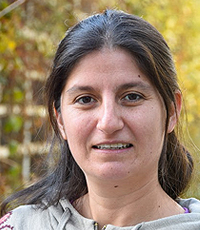Considering that Chile’s major cities are in the coastal zone, this research line seeks to determine the impact of climate change on these socio-natural territories.
For the 2024-2025 period, the research line is committed to a comprehensive approach, delving deeper into the physical and biogeochemical coastal processes at various spatiotemporal scales. From a socio-ecological perspective, this approach will focus on understanding the drivers, impacts, risks, and feedback.
Efforts are directed toward understanding the co-variability between coastal upwelling and the oxygen minimum zone in Chile, particularly with hypoxia (lack of oxygen) events. The dynamics of ice melt and its connection with atmospheric processes are also studied, which is crucial for studying the impacts of climate change on the Antarctic ice sheet and sea level rise.
Work is being done on the research and characterization of extreme events, such as harmful algal blooms and marine heat waves, through in situ and remote observations and the use of coupled regional numerical models (atmosphere-ocean waves).
The research line is dedicated to bringing its findings to the local scale, aiming to provide a comprehensive understanding of the impacts, risks, and processes of coastal communities in building resilience. Moreover, it seeks to identify potential coastal climate refugia, offering practical solutions based on current environmental variability, future scenarios, and potential services to protect against future climate risks.
Review the research achievements of this line in our institutional report.













